Is Iceberg Lettuce Toxic to Rabbits?
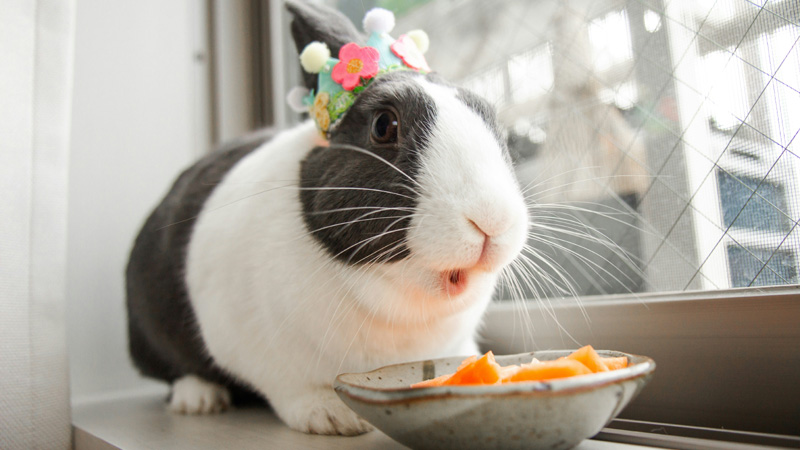
Photo by Yona Dutchbunny on Unsplash
Rabbits, with their delicate digestive systems and specific dietary requirements, are cherished pets in many households. As herbivores, rabbits thrive on a diet rich in hay, fresh vegetables, and some fruits. However, not all vegetables are suitable for rabbits, and one of the most commonly avoided options is iceberg lettuce. While iceberg lettuce is a staple in human salads, it poses potential risks to rabbits that pet owners should be aware of.
In this article, we'll delve into the reasons why rabbits can't eat iceberg lettuce, explore the associated risks, and discuss alternative options for their diet.
1. Lack of Nutritional Value
One of the primary reasons why rabbits should avoid iceberg lettuce is its lack of nutritional value. Unlike darker, leafier varieties of lettuce such as romaine, green leaf, or red leaf lettuce, iceberg lettuce contains minimal essential nutrients that rabbits need to thrive. It is primarily composed of water, with very low levels of fiber, vitamins, and minerals. While water is essential for hydration, rabbits require a diet rich in fiber, vitamins, and minerals to maintain their overall health and well-being.
2. High Water Content
Iceberg lettuce is known for its high water content, which can be problematic for rabbits. While hydration is important for rabbits, consuming excessive amounts of water-rich foods like iceberg lettuce can lead to diarrhea and digestive upset. Rabbits have sensitive digestive systems, and sudden changes in their diet, such as consuming large quantities of water-rich foods, can disrupt the balance of beneficial bacteria in their gut, leading to gastrointestinal issues.
3. Potential for Lactucarium Toxicity
Iceberg lettuce contains a substance called lactucarium, which is found in the milky sap of lettuce plants. While lactucarium is not inherently toxic to rabbits in small amounts, consuming large quantities of iceberg lettuce can potentially lead to lactucarium toxicity. Symptoms of lactucarium toxicity in rabbits may include digestive upset, lethargy, and loss of appetite. While lactucarium toxicity is rare, it's essential for rabbit owners to be aware of the potential risks associated with feeding iceberg lettuce to their pets.
4. Risk of Dental Problems
Another concern with feeding rabbits iceberg lettuce is the risk of dental problems. Iceberg lettuce lacks the fibrous texture of darker, leafier lettuces, which can help wear down rabbits' continuously growing teeth. Rabbits rely on chewing fibrous foods to keep their teeth properly worn down and prevent dental issues such as overgrowth or malocclusion. Feeding rabbits a diet high in water-rich, low-fiber foods like iceberg lettuce may contribute to dental problems over time if not balanced with adequate hay and other fibrous vegetables.
Alternatives to Iceberg Lettuce
While iceberg lettuce may not be the best choice for rabbits, there are plenty of alternative vegetables that provide superior nutrition and are safer for rabbits to consume. Some suitable alternatives to iceberg lettuce include:
Romaine Lettuce: Romaine lettuce is a nutritious option for rabbits, providing essential vitamins and minerals without the high water content of iceberg lettuce.
Green Leaf Lettuce: Like romaine lettuce, green leaf lettuce is a safe and nutritious choice for rabbits, offering a good balance of fiber and hydration.
Red Leaf Lettuce: Red leaf lettuce is another excellent option for rabbits, providing essential nutrients while adding variety to their diet.
Kale: Kale is a nutrient-dense vegetable rich in vitamins and minerals, making it a beneficial addition to a rabbit's diet when offered in moderation.
Parsley: Parsley is a flavorful herb that rabbits enjoy and can provide additional nutrients to their diet when fed in small amounts.
Cilantro: Cilantro is another herb that rabbits may enjoy and can be offered as a nutritious treat in moderation.
Carrots: Carrots are a favorite treat for many rabbits and can be fed in small quantities as a source of vitamins and minerals.
When offering vegetables to rabbits, it's essential to introduce new foods gradually and monitor their response for any signs of digestive upset or adverse reactions. Additionally, rabbits should always have access to fresh hay, which is a vital component of their diet and essential for proper digestion and dental health.
Conclusion
While iceberg lettuce may be a common staple in human diets, it may not be the best choice for rabbits due to its lactucarium content, minimal nutritional value, potential for digestive upset, and risk of dental problems. Instead, consider offering rabbits a variety of dark, leafy lettuces such as romaine and green leaf, along with other safe and nutritious vegetables to ensure their health and well-being.
You May Also Like
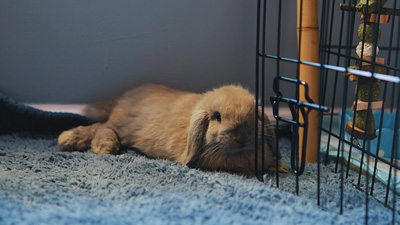 Rabbit BreedsDo Rabbits Smell If Kept Indoors?
Rabbit BreedsDo Rabbits Smell If Kept Indoors?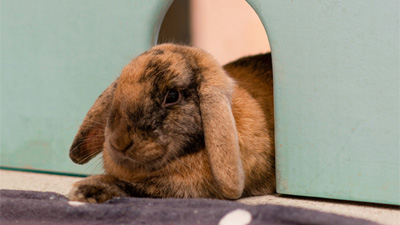 Rabbit BreedsWhat Is The Friendliest Breed of Rabbit?
Rabbit BreedsWhat Is The Friendliest Breed of Rabbit?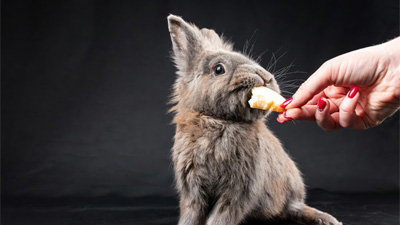 Rabbit BreedsWhich Type of Rabbit is Best for a Pet?
Rabbit BreedsWhich Type of Rabbit is Best for a Pet?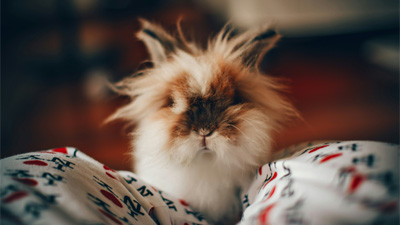 Rabbit BreedsWhat Breed Of Rabbit Sheds The Least?
Rabbit BreedsWhat Breed Of Rabbit Sheds The Least?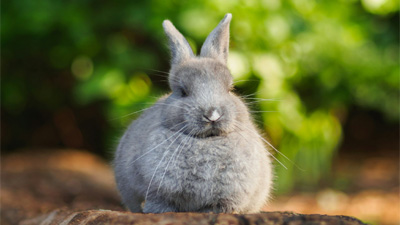 Rabbit Breeds6 Low-Maintenance Rabbit Breeds For Busy Lifestyles
Rabbit Breeds6 Low-Maintenance Rabbit Breeds For Busy Lifestyles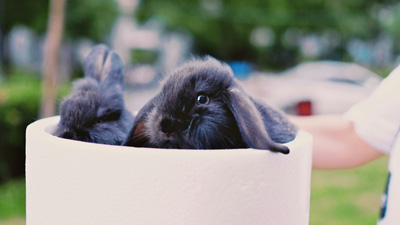 Rabbit BreedsWhich Rabbits Are Easiest To House Train? Netherland Dwarf
Rabbit BreedsWhich Rabbits Are Easiest To House Train? Netherland Dwarf